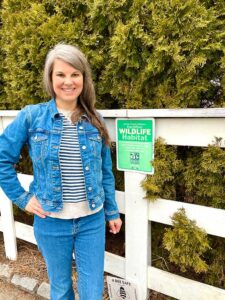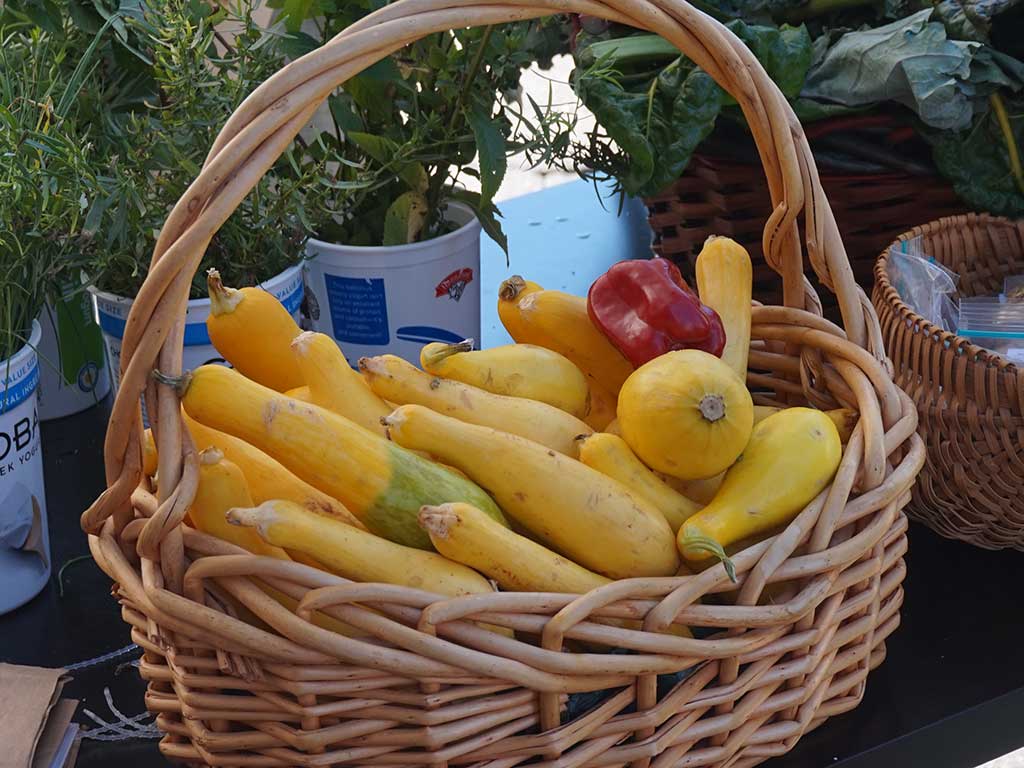
Avery Yale Kamila: Protecting Portland from Pesticides
Every month PelotonLabs co-founder Liz Trice interviews a local community member. This month, Liz caught up with Avery Yale Kamila, who is the co-founder of Portland Protectors, a grassroots group working to protect and enhance the natural environment in the city.
Portland Protectors started to reduce pesticide use, right?

Yes. In 2015 Maggie Knowles and I, both parents, had reached a breaking point with seeing kids exposed to synthetic pesticides. The city used to have a Roundup sidewalk spray program. A citizens group formed in 2000 and was able to get the city to cut use by 50%.
But in 2003 I watched the City spray the perimeter of the Reiche school. And in 2013, when I was pregnant and on my walk to work, I passed a playground where a city contractor was spraying the perimeter of the playground. The worker was not wearing gloves or other protective gear. And within minutes of the spray, dozens of kids came to wait for the school bus and kids sat on the wet Roundup. I was floored! I, a pregnant woman was exposed, the worker was exposed, and all the children were exposed! The city promised not to do it again, but I felt that it had gone too far.
We started contacting people we knew who were working on the issue, including people in Ogunquit who had already passed an ordinance. Pretty quickly we realized that Maine is one of only six states that have home rule when it comes to pesticide use. So, citizens here still have the right to control their exposure to pesticides.
So, how did Portland Protectors go about doing so?
We set about creating an ordinance. The process was so long and drawn out, and so boring, and so stressful, but also so important. Because this is about our kids, our water, our health, and these landscaping pesticides are used for purely cosmetic reasons! I’ve never met anyone who wants to poison their children or dogs or kill birds or bees… they’re just trying to get a job done.
Even though Portland has gotten this very successful ordinance in place – one of the strongest in the nation – it still doesn’t ban the sale of pesticides. Locally, we have Lowe’s and Home Depot in town that sell pesticides. But Maine Hardware and Eldridge Hardware have taken the steps of voluntarily removing the pesticides from their shelves to align themselves with the ordinance.
There are thirty communities in Maine now that have ordinances on the books. Most apply to public land, but some towns, Portland, South Portland, Ogunquit, and Blue Hill ban pesticide use town-wide, and Blue Hill bans the sale. Some of the towns near forestry plantations ban aerial spraying, and some ordinances are about protecting particular watersheds. Falmouth and Yarmouth have tried and failed. Cape Elizabeth and Hallowell are both taking it up this month.
What’s so bad about pesticide use?
Each pesticide has different risks. But generally, pesticides can cause cancer, respiratory or brain developmental issues, immune system issues, impact water quality, and hurt wildlife. Some pesticides will injure aquatic animals, especially sensitive ones, like baby lobsters. Harpswell’s ordinance is to protect lobsters. If your house is on a five-acre lot, if your neighbor uses Roundup, it might bother you a little. But in dense urban environments, everyone is affected.
Organic pesticides can also be acutely toxic. The major difference is that synthetic pesticides are manufactured from petroleum and other chemicals that don’t break down easily. Organic pesticides quickly dissipate in the environment.
One of the things that people in real estate don’t like to talk about, is that if you’re in rural Maine, especially if it was a farm – apple orchards are notorious – you have to test the soil for pesticide residue. It can cost hundreds of thousands of dollars to clean up the soil. Many pesticides have PFAS, even though there’s a law banning PFAS… It’s difficult!
We don’t even know what might be the health impacts of so many of these “forever” chemicals. We already have so many of these chemicals in our blood, and Maine has one of the highest cancer rates in the country.
What’s next?
We had the ordinance passed unanimously in 2018, even though there was so much lobbying by out-of-town corporations. The ordinance gave the city three years to transfer its athletic fields. It doesn’t take much to manage your back yard organically. But high-performance, intensive-use fields take more effort to manage with organic methods.
I helped get a $10,000 grant from Stonyfield and Hannaford for [Portland] Parks and Rec to do a demonstration project on Fox Street, and they learned management techniques from a national consultant, and it worked great. The city’s Parks and Recreation Department has embraced the ordinance and done an excellent job converting all its athletic turf fields to organic management. The fields and parks have never looked better.
In addition, I’ve heard from new residents who say the organic ordinance played a role in their choosing to move to Portland because of the increased quality of life and peace of mind it provides. Residents have also reported seeing more native pollinators since the ordinance passed. Nationally, Portland is seen as a leader, and many communities in Maine are interested. Our major campaign has been successful, and now we have a good network of people interested in environmental issues.
The next level people are talking about is No Mow May. How to turn your lawn into a garden and thinking about how to make your little space inviting to wildlife. We are also interested in expanding the tree canopy in Portland. There’s so much data about how beneficial tree canopy is to our mental and physical health.
Are there other steps to consider?
There’s so many steps we can take: acting on the interconnectivity of sewer engineering, trees, walkability, equity, and visioning a new world. We’re living in the world the colonizers created, and people are starting to see the flaws in that system. How do we create a better future and not just slow the negatives?
People have had to survive some really negative things, so I can survive a bunch of boring bureaucratic meetings and boring ordinances. That’s nothing compared to what other people have struggled through.
Portland has a lot to be proud of in the passage of its toughest in the nation organic land care law in 2018, which has recently been expanded to include a ban on synthetic fertilizer. The ordinance has given the city positive national publicity and raised the quality of life for all residents.
How can people learn more, contribute, or get involved?
- Portland protectors Facebook page: https://www.facebook.com/portlandprotectors.
- Leave the leaves on your lawn! That’s where the eggs for the pollinators are – that’s food for wildlife. Leaves filter the pollutants out of rain water and enrich the soil.
- Email Avery to join the email list or learn how to contribute: avery.kamila@gmail.com.
PelotonLabs is a coworking space in the West End of Portland, Maine with a mission to connect and encourage people working on their own to manifest their visions without fear.





